-
•
•
78 responses

The changes at the Gospel Topics section of LDS.org (which I wrote about two weeks ago) and especially the Church’s new Race and the Priesthood article have rekindled questions about the fallibility of Church leaders. After all, the Church’s current position completely disavows the past practice of denying the priesthood to blacks and all but explicitly states that the practice was an error from the start. Chalk it up with Adam-God and blood atonement and poor Brother Brigham seems to be batting 0.000 at theological innovation. It’s difficult to reconcile such grave errors with the statement, canonized in Official Declaration 1, that “The Lord… Read More
-
•
•
16 responses
According to the de facto Mormon liturgical calendar, it is the time of year to talk about goal-setting. Most Mormon discussions of goals make me want to poke myself in the eyeball with a fork–a reaction I initially did not understand, since I set goals for myself all of the time. But after thinking about it for a while, I figured out a few reasons why the standard Mormon discourse on goals and goal-setting aggravates me so much. Read More
-
•
•
5 responses
The second lesson in the Joseph Fielding Smith manual, used in Priesthood and Relief Society lessons in the coming year, discusses the life of Jesus Christ and his role in the plan of salvation; quite a lot to cover in a single lesson. In the texts included, Smith ranges from Christ’s birth as the only begotten son of God, to his role establishing a pattern for us to follow, to how we are His sons and daughters through the atonement and through our obedience to His teachings. Fortunately, Mormon poetry, like our teachings, emphasize the role of Christ, making it… Read More
-
•
•
Mormon beliefs about the pre-existence are an important part of our understanding of our purpose in this life and the meaning of the life to come. The beliefs covered in the second lesson in the Old Testament Gospel Doctrine manual, “fore-ordination” and the “war in heaven,” are no exception. But, it is also worth remembering that what happened in the pre-existence is veiled from our memories. The details most relevant to individuals are something we don’t know. Our own specific missions aren’t clear. We are left with “shadows and whisperings.” Read More
-
•
•
5 responses
Some borrowed thoughts I’ve found provoking recently. Read More
-
•
•
10 responses
The January 2014 Friend has an Old Testament reading chart. Read More
-
•
•
26 responses
To keep the rest of this post in context, let me repeat that I think Rexburg is a fantastic place, that BYU-Idaho has gotten the most important things right in its transformation from a junior college into a four-year university, and that its dress code is not a terribly important issue. The university’s path forward to becoming the kind of university it hopes to be, although not simple, is clear enough. Another tricky question for the future of the university is how to strike the right balance between local heritage versus consistency with the system flagship in Provo: How much… Read More
-
•
•
9 responses

One of my favorite parts of Christmas is sitting in the darkened living room, gazing at the lighted tree. There is something magical and transfixing about the warm, gentle light, the fragrance of pine, and the palpable presence of nature that fills my home with its incongruous beauty. I have many memories of reading Scripture by the light of the Christmas tree. Usually we read from Luke, with Matthew’s bit about the Wise Men added in; sometimes we expand into Isaiah, either spoken or set to Handel. This year, though, when I stole a moment of stillness out of the… Read More
-
•
•
One response
In the summer of 2014, the Neal A Maxwell Institute at Brigham Young University, with support from the Mormon Scholars Foundation and the Jack and Mary Lois Wheatley Institution, will sponsor a summer seminar for graduate students and junior faculty on “The History of the Mormon Family.” The seminar will be held on the BYU campus in Provo, Utah, from June 15 to July 26. Admitted participants will receive a stipend of $3000 with an accommodations subsidy if needed. The seminar continues the series of seminars on Mormon culture begun in the summer of 1997. In 2014, the seminar will… Read More
-
•
•
One response

I’m spending time moving my family into our new home and getting ready for Christmas, so here’s a song from Dustin Kensrue’s Christmas album This Good Night Is Still Everywhere. It’s not the usual sound, but that’s part of why I like it so much. (And now I’m going to get some Mannheim Steamroller going…) Read More
-
•
•
7 responses
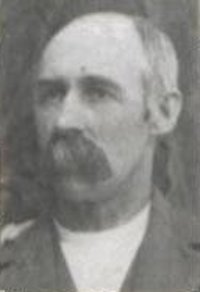
The new Joseph Fielding Smith manual for the Relief Society/Priesthood lessons presents a minor logistical problem—it has 26 lessons, which may mean teachers will have to drop two of the lessons (since two lessons each month are taught from the manual). Because of this I will post poems for the next few weeks so that teachers can choose from at least 4 of the lessons each week. The first lesson focuses on God, his attributes and nature, and our relationship with him. But while we have poems and hymns that discuss this, I though the following poem would be a… Read More
-
•
•
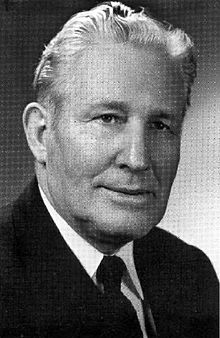
For the coming year, I’ve decided to post poetry for use in Sunday School and Priesthood/Relief Society classes two weeks ahead of when they would normally be used, instead of a week ahead as I’ve done in previous years. I’m doing this to allow teachers a bit more time to prepare and integrate the poetry into their lesson plans (if they wish to use the poetry), and because, in the case of the Priesthood/Relief Society manual, there are more lessons than can be covered in a year. Working two weeks ahead will give the teacher time to decide which lessons… Read More
-
•
•
7 responses

The District of Utah has had a busy week. As I’m sure you heard (and if you haven’t, you ought to read Kaimi’s post first), Utah’s ban on same-sex marriage has been struck down as unconstitutional. A week ago, in the wake of the decision that didn’t actually legalize polygamy, I looked at the potential tax consequences of that decision and, fairly anti-climatically, determined that there were none. Plenty of electrons will be spilled going over this decision but, again, I suspect that the tax consequences will be underexplored. Read More
-
•
•
7 responses

We were headed to the car. As we left the building, my wife slid her arm in mine, in part because the sidewalk was still slick after the snowstorm earlier in the week. And when we reached the curb and waited for the light to cross the street, my personal space was invaded. Read More
-
•
•
27 responses
By now you’ve heard the news. A federal judge in Utah just ruled that the state’s ban on same-sex marriage was unconstitutional. This follow on last week’s ruling, from a different judge, that portions of Utah’s polygamy statute were also unconstitutional. What does it mean? Obviously, it means the advent of gay polygamy!! It won’t stop until everyone is married to everyone else, in one giant gay-polygamous-mega-wedding. Let the festivities begin! Okay, maybe not. Let’s go through the rulings, piece by piece, to see what they say, and what their effects may be. Read More
-
•
•
15 responses
-
•
•
11 responses

BYU’s Religious Studies Center publishes The Religious Educator, a little-known LDS journal that deserves wider recognition. Read More
-
•
•
27 responses

I told my Gospel Doctrine class yesterday afternoon that since we had run out of lesson manual for the year we were going to go rogue. Then I proceeded to give the first lesson I’ve ever given (I think) in which I exclusively used officially-approved Church materials[1]. I could pick anything I wanted to teach about, and I choose to cite three videos and four articles from the Gospel Topics section of LDS.org. And yet I did feel like there was something quietly revolutionary about the material we covered in the lesson. The article that has riveted the Bloggernaccle and even the… Read More
-
•
•
25 responses
Among laypeople, one sometimes finds a distrust of scholarship as it applies to the Bible, particularly if that scholarship runs against a traditional interpretation, or if tells you an obvious face-value reading you favor doesn’t really mean what you think it does. LDS have competing traditions towards serious scripture study. On the one hand, we are not a Bible-based (or even Book of Mormon-based) religion, where doctrine comes primarily through exegesis and interpretation. No sir, we’ve got prophets! We make an end run around all that stuff. We don’t believe you must attend college and be trained for the ministry to… Read More
-
•
•
Just a reminder that the deadline for applications for the First Annual Summer Seminar in Mormon Theology, co-spsonsored by The Mormon Theology Seminar and the Neal A. Maxwell Institute for Religious Scholarship, is December 15, 2013. Read More
-
•
•
11 responses

On Friday, December 13, the Judge Waddoups, a district court judge in the District of Utah, held that Utah’s criminalization of polygamy was unconstitutional. Partly, anyway. More on that in a minute. I suspect that this opinion will reverberate throughout the blogosphere and the mainstream media, with the reporting displaying various levels of accuracy. The question I suspect won’t get much play, though, is, what are the tax consequences of this decision? Read More
-
•
•
84 responses
Since Time named its Person of the Year this past week, and named a religious figure at that, it must be time to select the Mormon of the Year. Read More
-
•
•
45 responses

(I’m probably cramming too much into this mishmash of a post, but frustration over certain conversations has collided with academic stress and lack of time to refine it. I may regret it, so consider this a preview, a beta.) The expectations we bring to reading scripture can radically affect our reading, our faith, and our communities. One frequent assumption, traditional in many religions, is that revelation (and scripture, as a subset of revelation) must be monolithic, unified, in harmony, univocal, internally consistent. This is not the case, and it is not an accident. Let’s back up, though, particularly as we get… Read More
-
•
•
7 responses
I hope you have seen the recent public announcement of the initiative to use the Gospel Topics section of LDS.org to essentially do what we have been calling “inoculation” for the last ten years (see here for a list of links to Bloggernacle posts on the topic). The three short video interviews of General Authorities listed at the top of the Gospel Topics page (identified with titles like “How will Gospel Topics be enhanced?” rather than identified as GA interviews) give additional details about the initiative. While there is a lot of ground to cover, this is a very promising… Read More
-
•
•
27 responses
It seems to me that any time you turn something into a point of conflict, you risk being in the wrong. It becomes more important to be right than it is to understand your fellow brother, to exercise compassion, to be humble and teachable. Read More
-
•
•
21 responses

In my imagination there is a hall of records in the future Celestial Zion where anyone can review the mortal life of any other person as seen from their perspective. It is an imposing structure in its own right, one part great library and one part museum, but it lies in the shadow of grander and more glorious edifices. The business of Zion will be eternal progression, and so the hall of records receives fewer visitors than the other communal spaces of learning. It is vast and solitary place. A person could enter and spend an entire day walking between… Read More
-
•
•
3 responses

Driving [1] to work Friday morning the news reports were of course all about Nelson Mandela who had passed away the night before. Mandela was unquestionably a savior on Mt. Zion in the Mormon sense Read More
-
•
•
3 responses
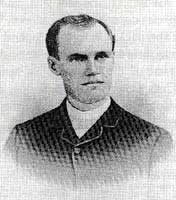
Finding Mormon poetry that talks about Christ is not hard at all. In fact, of all the Mormon poetry that I’ve read (considering only poems written by Mormon authors), the number of poems about Christ surpasses by far the number of poems about any other single individual. If this is a good proxy for what Mormons believe, then there is no doubt: Mormons worship Christ, not Joseph Smith. But the final Lorenzo Snow lesson for the year focuses on the mission of Christ, mentioning also that he has visited the earth in the latter-days and will come again. That particular… Read More
-
•
•
12 responses
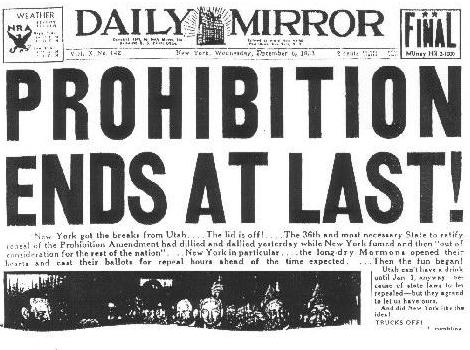
The Twitters tell me that 80 years ago today, Utah became the 36th state to ratify the 21st Amendment, thus ending Prohibition. Whatever you think about Prohibition, it’s probably worth noting the Pres. Grant was not a fan of its end. In fact, he addressed the end of Prohibition—and Utah’s role in ending it—at General Conference in 1934. Here’s an (annotated by me) excerpt of what he said: Read More
-
•
•
53 responses
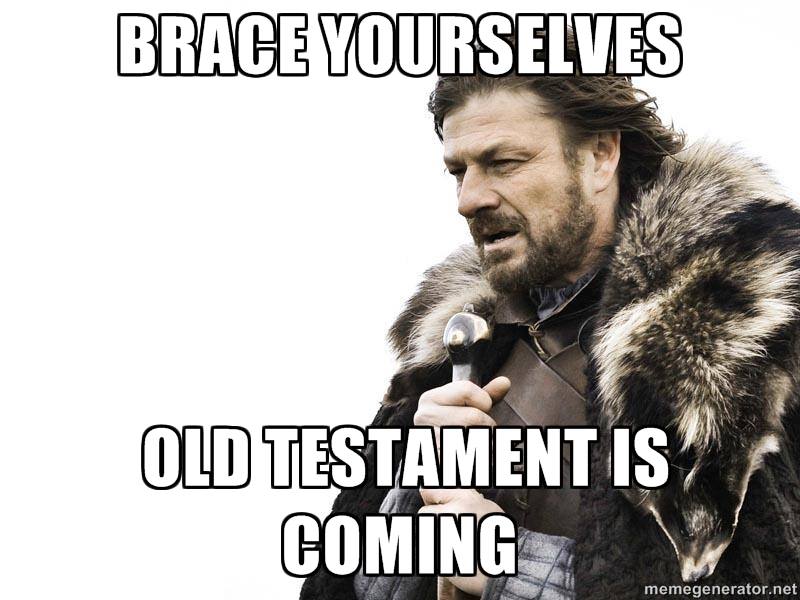
December has finally arrived! For the last six months, I’ve felt like Old Testament is just around the corner. Finally we’re into the last loose stretch of D&C and I can put up the first Old Testament post. With the cyclic return to the Old Testament comes the perennial question, how do I make sense of this? Where should I turn to read “out of the best books”? Look no further, friend, for here is a scattered list. (I’ve been even busier than anticipated, and just don’t have time to polish or add images.) First, though, a note. All the books below… Read More
